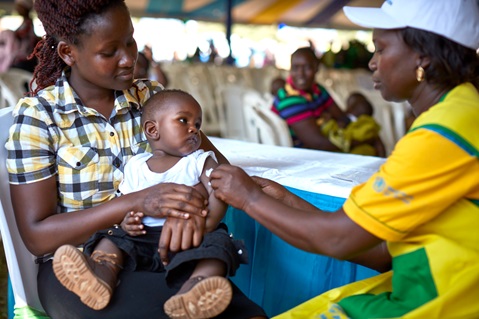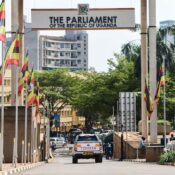
Children in Congo can’t get new mpox shots because of an old problem
This week, adults in the capital of the Democratic Republic of the Congo began getting shots to protect them from mpox. But children, who are the most at risk, could not get shots because a key dose gift was held up by an old legal issue.
In September, Japan promised to give away three million doses of its LC16m8 vaccines, which were first made by a Japanese company called KM Biologics to fight smallpox.
The pledge was the largest single gift ever made to fight the disease anywhere, and it is the only vaccine that is safe and effective against mpox that can be given to kids.
But it took a while for the two countries to agree on something that affects health around the world: who should pay if the vaccine has side effects that were not expected?
Congo said that the problem has been fixed. Experts in global health said that the delay once again showed that we need a better system to stop the seemingly technical issue that is stopping life-saving moves.
Poor countries’ governments are afraid that they will have to pay claims if the terms aren’t clear. Governments that give money are also often unwilling. But the payouts can be so big if something goes wrong that everyone has to agree on who is guilty before the doses can be sent out.
Concerns like these slowed down the COVID-19 vaccine effort.
While reading the donation agreement, Congo’s health minister Samuel Roger Kamba Mulamba added that both countries would be responsible if any bad impacts happened. He said this at a press conference in Kinshasa earlier this month.
It took so long because it had to go back to Japan.”All the formalities have now been taken care of,” he said.
APPROVAL FOR “EMERGENCY USE”
Japan’s government told Reuters earlier this month that there was no disagreement about who was responsible, but they did not give any more information. They also said that talks about shipping were still going on. The Japanese business that made the vaccine, KM Biologics, refused to say anything.
Global health experts and business people said that a better system should be set up before big outbreaks to handle the liability problem.
“During a pandemic, well-designed no-fault compensation systems are essential,” said Paula Barbosa, who is the associate director of vaccine policy at the trade group for the pharmaceutical industry called the International Federation of Pharmaceutical Manufacturers and Associations (IFPMA).
During a crisis, when there is pressure to give new goods faster “emergency use” authorizations, it is especially hard to talk about liability.
On Tuesday of last week, the World Health Organization gave LC16m8 emergency clearance. In June, the government of Congo also gave it clearance. But the insurers of vaccine makers won’t pay for side-effect claims for drugs that get quick approvals.
The other vaccine for adults, which was made by Bavarian Nordic, has more approvals, so there has been no problem with responsibility. Congo has been promised three million doses of this shot by countries like the U.S., but only 375,000 doses have come so far. This is still a long way short of what African health officials say is needed.
But people are slowly getting this shot, and some at-risk areas of the huge country don’t seem to know about the push.
Health officials in Congo and around the world said this could also be a problem with the Japanese gift for children. However, the need is very great: most of the more than 1,100 suspected mpox deaths in Africa this year have been children.
An aid worker in Congo said, “It’s important that these vaccines get there quickly.” But, the doctor said, there should be tests of how to give the vaccine and a plan for where it would work best before it is widely used.
The LC16m8 vaccine is given with a split needle, which means that the skin is pricked 15 times. This method will need some training for health workers. Japan is also giving the needles away for free.
The Japanese government said on Tuesday that it was “working together to solve these issues,” but they didn’t say what those actions were.
As Tatsuki Sato from the Ministry of Health said, “We can’t tell you how to solve them right away.”
All Categories
Recent Posts
Tags
+13162306000
zoneyetu@yahoo.com



